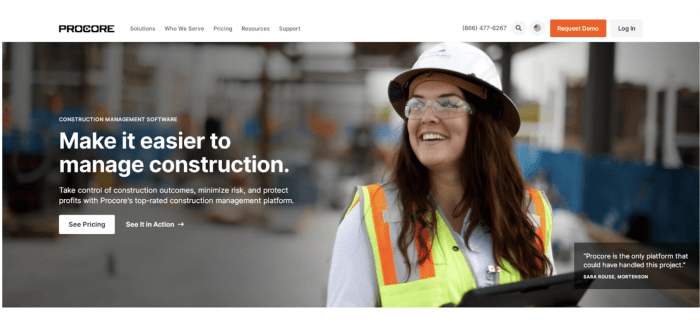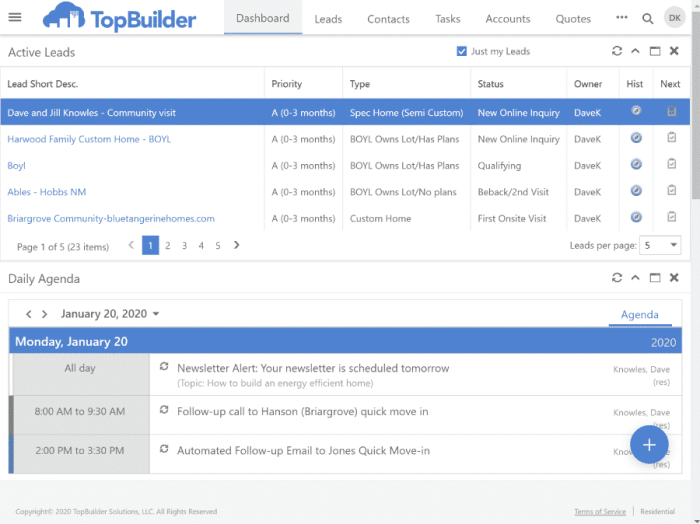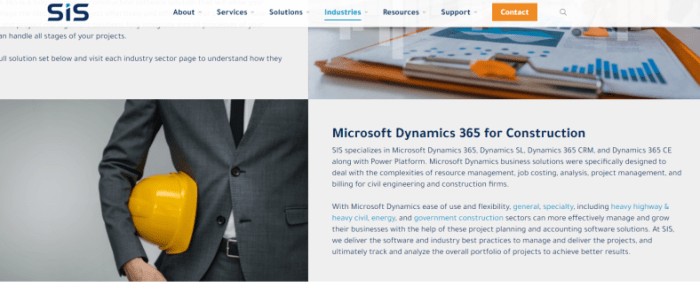The construction industry is dynamic, demanding, and highly competitive. Managing projects, clients, and teams effectively is crucial for success. A robust Construction CRM (Customer Relationship Management) software can be the key to streamlining operations, improving communication, and boosting profitability. This comprehensive guide explores the best construction CRM software options available, helping you choose the perfect solution for your business needs.
We’ll delve into key features, pricing models, and considerations to ensure you make an informed decision.
Understanding the Need for Construction CRM Software
Construction projects are inherently complex, involving numerous stakeholders, intricate schedules, and meticulous budgeting. Without a centralized system, managing these aspects can become overwhelming. A dedicated construction CRM offers several vital advantages:
- Improved Client Communication: Centralized communication platform for seamless interaction with clients, subcontractors, and architects.
- Enhanced Project Management: Streamlined project tracking, task management, and deadline monitoring.
- Better Lead Management: Efficient lead capture, qualification, and nurturing processes.
- Increased Team Collaboration: Facilitates seamless information sharing and collaboration among team members.
- Improved Reporting and Analytics: Provides valuable insights into project performance, profitability, and team productivity.
- Reduced Administrative Overhead: Automates repetitive tasks, freeing up valuable time and resources.
Key Features to Look for in Construction CRM Software
When choosing a construction CRM, consider these essential features:
Project Management Capabilities, Best construction crm software
- Task Management: Assign, track, and manage tasks with deadlines and responsibilities.
- Timeline Visualization: Gantt charts or similar tools for visualizing project schedules.
- Document Management: Centralized repository for storing and sharing project documents.
- Progress Tracking: Monitor project progress against timelines and budgets.
- Budget Management: Track expenses, manage invoices, and monitor profitability.
Client Relationship Management (CRM) Features
- Contact Management: Store and manage client information, including contact details, communication history, and project details.
- Lead Management: Capture and qualify leads, track their progress, and nurture them through the sales pipeline.
- Communication Tools: Integrated email, SMS, and other communication channels for efficient client interaction.
- Customer Support Ticketing: Manage and resolve client inquiries efficiently.
Reporting and Analytics
- Customizable Reports: Generate reports on key performance indicators (KPIs) such as project profitability, team productivity, and client satisfaction.
- Real-time Dashboards: Monitor project progress and key metrics in real-time.
- Data Export: Export data to other systems for analysis and reporting.
Integration Capabilities
- Accounting Software Integration: Seamless integration with accounting software for accurate financial tracking.
- Project Management Software Integration: Integrate with other project management tools for a unified workflow.
- Email Marketing Integration: Integrate with email marketing platforms for efficient client communication.
Top Construction CRM Software Options
Several excellent construction CRM software options cater to various business needs and budgets. This is not an exhaustive list, and the best choice will depend on your specific requirements.

Source: pipelinecrm.com
- CoConstruct: Known for its user-friendly interface and comprehensive features, ideal for small to medium-sized businesses.
- Buildertrend: A robust platform with advanced project management and client communication capabilities, suitable for larger construction companies.
- JobNimbus: A popular choice emphasizing ease of use and strong lead management features.
- Houzz Pro: A well-integrated solution connecting directly with the Houzz platform, beneficial for residential construction businesses.
- PlanGrid: Focused on project management and collaboration, particularly useful for field teams.
Each of these platforms offers a range of pricing plans, often based on the number of users and features included. It’s crucial to carefully review the pricing details and feature sets before committing to a specific solution.
Choosing the Right Construction CRM: Key Considerations
Selecting the right CRM involves more than just comparing features and pricing. Consider these crucial factors:
- Business Size and Needs: A small business might find a simpler, more affordable solution sufficient, while a larger company might require a more robust and scalable platform.
- Integration with Existing Systems: Ensure compatibility with your current accounting, project management, and other software systems.
- User-Friendliness: Choose a system that is intuitive and easy for your team to learn and use.
- Scalability: Select a solution that can grow with your business as your needs evolve.
- Customer Support: Reliable customer support is crucial for resolving issues and getting assistance when needed.
- Security: Ensure the platform offers robust security measures to protect sensitive data.
Frequently Asked Questions (FAQ): Best Construction Crm Software
- Q: How much does construction CRM software cost? A: Pricing varies widely depending on the software, features, and number of users. Expect to find options ranging from affordable monthly subscriptions to more expensive enterprise solutions.
- Q: Can I integrate my existing accounting software with a construction CRM? A: Many construction CRMs offer integration capabilities with popular accounting software. Check the specific software’s features to confirm compatibility.
- Q: What are the benefits of using a construction CRM? A: Benefits include improved client communication, enhanced project management, better lead management, increased team collaboration, and reduced administrative overhead.
- Q: Is construction CRM software difficult to learn? A: Most modern construction CRMs are designed with user-friendliness in mind. However, the learning curve can vary depending on the complexity of the software and your team’s technical skills.
- Q: How can I choose the best construction CRM for my business? A: Consider your business size, needs, budget, existing systems, and desired features. Try free trials or demos whenever possible to test the software before committing.
Resources
- Capterra Construction CRM Software
- G2 Construction CRM Software
- Software Advice Construction CRM Software
Conclusion
Investing in the right construction CRM software is a strategic decision that can significantly impact your business’s efficiency, profitability, and overall success. By carefully considering your needs, researching available options, and taking advantage of free trials, you can find the perfect solution to streamline your operations and achieve your construction goals.
Call to Action
Ready to transform your construction business? Explore the leading construction CRM software options today and request a demo to see how they can benefit your company. Don’t wait – start building a more efficient and profitable future!
User Queries
What are the key features to look for in construction CRM software?
Key features include contact management, project management tools, lead tracking, document management, reporting and analytics, and integration capabilities with other business software.
How much does construction CRM software typically cost?
Pricing varies greatly depending on the features, number of users, and vendor. Expect to find options ranging from affordable monthly subscriptions to more expensive enterprise-level solutions.

Source: method.me
Can construction CRM software integrate with my existing accounting software?
Many CRM systems offer integrations with popular accounting software. Check the vendor’s specifications to ensure compatibility with your current system.
Is cloud-based CRM software better than on-premise software?
Cloud-based solutions offer greater accessibility, scalability, and often lower upfront costs. On-premise solutions provide more control over data but require more IT infrastructure.
How can I choose the right CRM for my small construction business?

Source: pttrns.com
Start by identifying your key business needs and prioritizing essential features. Look for user-friendly interfaces and scalable options that can grow with your business.
